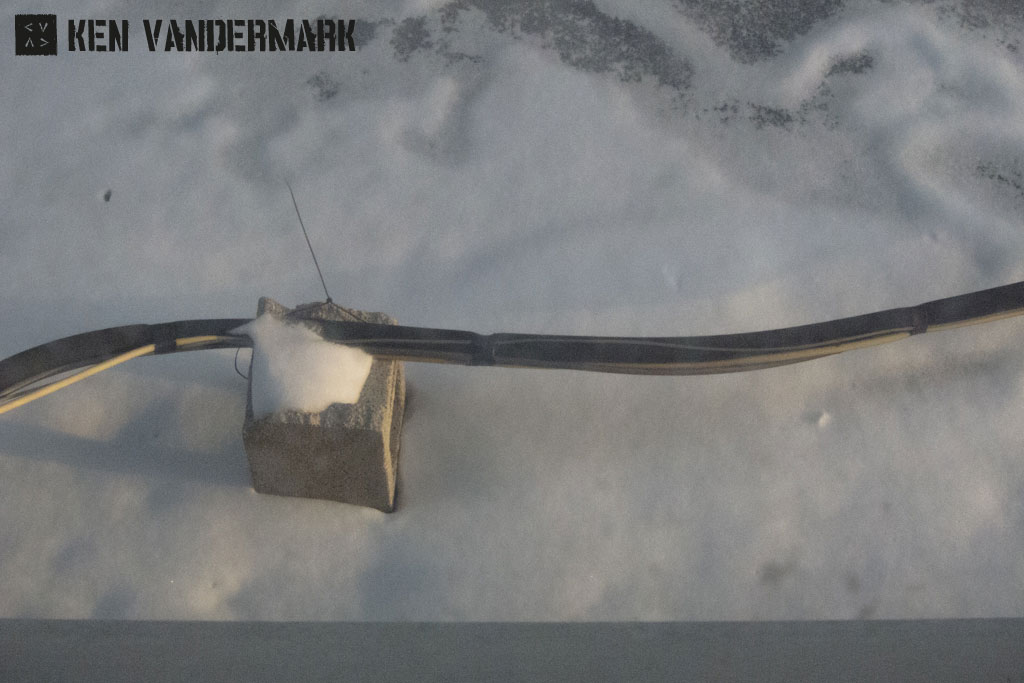

Ken Vandermark & Joe McPhee Compare Notes on Creative Music Renaissances
by John Corbett
Chicago. Summer of ’98. The city is bustling with new jazz activity, no small part of it directly involving Ken Vandermark, a bright, articulate, unflinchingly committed tenor saxophonist, clarinetist, composer and bandleader whose presence has been a major defibrillator for the city since he set up shop here in 1989. But Vandermark’s musical journey was sparked by another figure, multi-instrumentalist Joe McPhee.
Based in Poughkeepsie, N.Y., McPhee was already active in the late ’60s, as New York City’s originary free-jazz movement was transforming into the so-called “loft scene” of the subsequent decade. McPhee barely played in New York; instead, working with tenor and soprano saxophones, pocket-cornet and valve-trombone, he made his mark with a series of records for the Swiss hat Hut label (specifically established as an outlet for McPhee’s music), forging lasting musical relationships with a core group of European musicians.
McPhee’s 1976 solo record Tenor was a revelation to young Vandermark. Twenty years after Tenor was recorded, McPhee and Vandermark finally performed together in Chicago in a glorious trio concert with bassist Kent Kessler, and since then they’ve collaborated again in various settings.
Relaxing at Vandermark’s apartment, the two new yet old friends sat down to compare notes on markedly different backgrounds and startlingly compatible outlooks. A stuffed animal hiding next to the couch suggested an opening volley to McPhee.
Joe McPhee: To begin, Ken Vandermark, try to explain why I have a platypus on my head.
Ken Vandermark: Because you’re crazy!
John Corbett: Where did you fellows first meet?
JMP: Ken and I met briefly in Vancouver in 1993. Ken was playing with his group, and I’d read an article in which he mentioned my name and the influence I’d had on his music. I was surprised that I’d influenced anybody’s music. I went to the concert, and lo and behold, toward the end of the concert Ken introduced a piece of mine, “Goodbye Tom B.” I’d never heard anybody play my music; I was absolutely thrilled!
JC: Ken, you’re part of a creative music renaissance here in Chicago, and you’re very much associated with this scene, playing with a regular cast of characters week-in, week-out. Joe, there isn’t much of a scene in Poughkeepsie…
JMP: No, I never play there.
JC: …so you’ve made your artistic life in various other places, coming into other communities. It seems a big difference between the way you two function.
JMP: Curiously, I’ve worked with a regular cast of characters in Europe, Raymond Boni and Andre Jaume, which I’ve really made the center of my music. I play in New York occasionally, and on the West Coast. But in Europe, I was invited. In Poughkeepsie, there aren’t many presenters interested in improvised music. And my music is becoming improvised more and more. I’ve really moved away from written composition — I want to play what’s on my mind at the moment.
KV: I think Joe’s comment about being “invited” or not is part of why and how the scene has developed in Chicago. A lot of people here, and I include myself, had to find ways to do work, because we weren’t being asked. In different subgroups around the scene here, people are actively trying to make it happen. The city’s big enough to make that possible. I mean, you can see creative music every night of the week in Chicago. You can in New York, too. But I think that’s unusual. And to be able to play my own music, or the music of Sun Ra, Eric Dolphy, Albert Ayler, Mars Williams, Jim Baker, three nights a week, at home — that’s pretty amazing, and it’s been crucial to my own development. I’m aware of how fortunate I am to be able to do that. We aspire to be on the level of our favorite musicians. To get to that level, we have to perform. So we try to make our own circumstances. I think that’s what the AACM did, too.
JMP: Historically, I think what’s going on in Chicago right now is going to be very important. I pretty much developed in a vacuum. I rehearse a lot in my toilet, because the sound is good in there. Then I go out all over the country and around the world to all these extraordinary little places where wonderful musicians are playing their asses off. And we find that we really have a lot in common. I find people I like, we get together, have a drink. Most of my rehearsals consist of a glass of wine, a meal, conversation, maybe watching something on the TV. That’s it. We connect in another way, and the music will happen. “You can’t play”? What does that mean? I’ve played with amateurs who play with so much heart and soul — I’d much prefer to play with them than with some “professionals” who have ego up the ass! I don’t care about that. I’ve had some workshops where people come and play all the chord changes as fast as they can, and I throw ’em out! And other people come and say they’re afraid because they’ve only been playing their instruments a little time and they don’t have a bunch of technique, and I tell them to come in. In the end, we make some music. We’re not looking for Charlie Tuna, the great golden performances; we want people with some heart.
© 2024 Ken Vandermark – musician & composer | Disclaimer